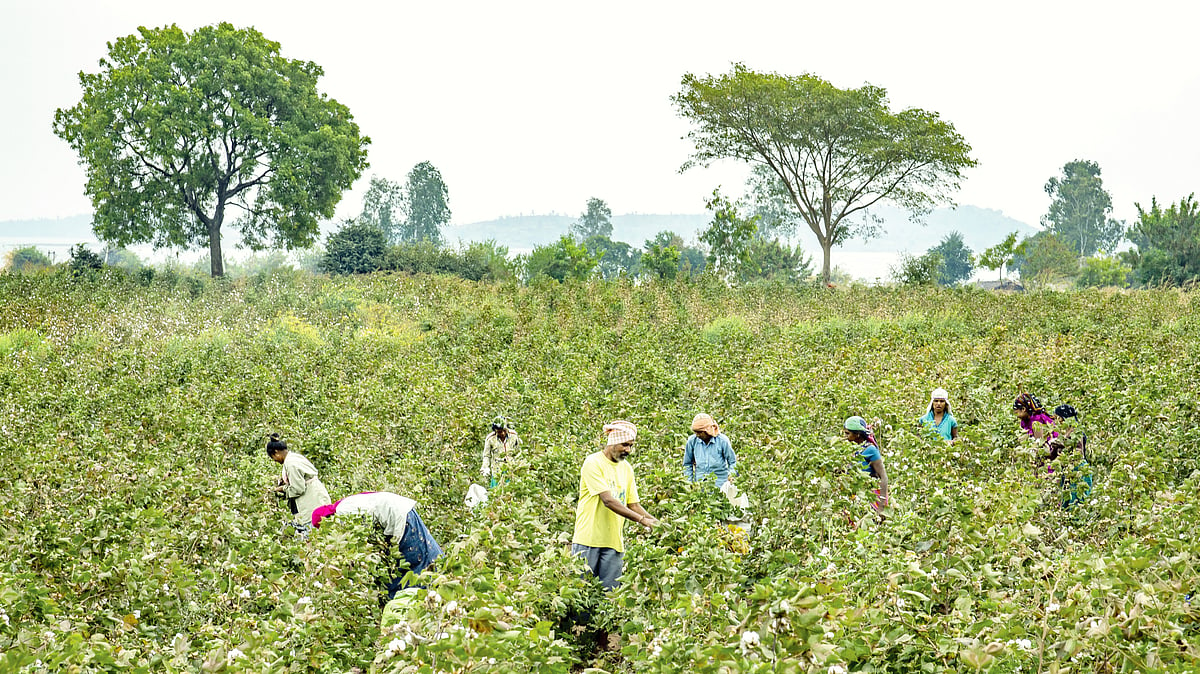Business
BoB Essential Commodities Index shows deflation, but are gains sustainable?
Questions remain on unintended consequences for farmers and the broader economy

The Bank of Baroda’s (BoB) Essential Commodities Index (ECI) has remained in deflationary territory for four consecutive months, with prices declining by 1 per cent year-on-year (YoY) in August and by another 0.9 per cent in the first nine days of September. The trend is being largely driven by sharp corrections in vegetables and pulses, aided by good domestic production and favourable global food and energy prices.
The lender noted that tomatoes, onions, and potatoes have seen pronounced corrections, with onion prices dropping by 37.5 per cent YoY, the steepest fall since January 2021, and potato prices touching their lowest in 44 months.
While this deflation is a relief for consumers and is expected to soften inflation by 55–75 basis points, questions remain on the sustainability of these gains and the unintended consequences for farmers and the broader economy.
The farmer’s paradox: cheaper food, lower incomes
On the surface, lower food prices appear to be a win for households battling rising costs. However, for farmers, the story is different. Steep price declines in perishable crops such as onion and potato can translate into distress sales, income uncertainty, and in some cases, outright losses despite healthy yields.
This cyclical phenomenon, often described as the 'cobweb effect', discourages farmers from planting these crops in subsequent seasons, potentially sowing the seeds for future shortages and price spikes.
Pulses, too, tell a similar story. While tur/arhar saw a sharp drop of 29 per cent in August, urad, moong, and masoor also recorded successive declines. Though the current kharif season has seen improved sowing, prolonged deflation may erode farmer confidence and disrupt supply cycles, raising questions about long-term food security and agricultural viability.
Published: undefined
Uneven relief across food categories
Cereals provide another layer of complexity. Retail rice prices have softened, but at a far slower pace compared with pulses and vegetables. This uneven relief suggests that while some staples are becoming cheaper, others remain sticky, potentially distorting household budgets and undermining the broader narrative of “easing inflation”.
GST cuts: relief with fiscal risks
The government’s recent move to cut GST rates on a wide basket of FMCG and durable goods has been described by BoB as a “sigh of relief” for inflation. The bank estimates a positive impact of 55–75 basis points on CPI, with consumption potentially receiving a boost worth Rs 0.7 lakh–1 lakh crore.
However, the flipside is fiscal: the rate cuts are estimated to cost the exchequer around Rs 48,000 crore, or 0.16 per cent of GDP. At a time when fiscal consolidation and structural reforms remain pressing needs, such tax incentives raise concerns about sustainability and the opportunity cost of foregone revenue.
The seasonal warning signs
BoB’s data also highlights a crucial nuance. While year-on-year deflation is evident, the index rose by 1 per cent month-on-month in August, or 0.8 per cent on a seasonally adjusted basis. This indicates that seasonal factors are already exerting upward pressure on prices, and that deflation may not be as entrenched as headline numbers suggest.
A fragile balance
The deflationary trend in essential commodities offers short-term comfort for consumers and headline inflation figures. But beneath the surface, farmer distress, uneven relief across food categories, fiscal risks from tax cuts, and early signs of seasonal price pressures point to a fragile and potentially unsustainable balance.
Policymakers face the delicate task of ensuring consumer relief without destabilising rural livelihoods or compromising fiscal prudence. Failure to strike this balance risks turning today’s deflation into tomorrow’s inflation shock.
With IANS inputs
Published: undefined
Follow us on: Facebook, Twitter, Google News, Instagram
Join our official telegram channel (@nationalherald) and stay updated with the latest headlines
Published: undefined